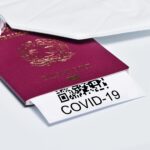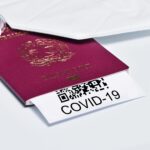For years, many individuals born abroad to a Canadian parent who was also born abroad found themselves in a perplexing situation, unable to claim the citizenship of their grandparents due to a restrictive rule. However, a recent landmark court decision and subsequent interim measures from Immigration, Refugees and Citizenship Canada (IRCC) have created a significant new pathway. This guide provides an in-depth exploration of the discretionary grant of Canadian citizenship, specifically for those affected by the first-generation limit (FGL).
- The Troubling Legacy of the First-Generation Limit on Canadian Citizenship
- A Monumental Shift: The Court Ruling That Redefined Citizenship by Descent
- IRCC’s Crucial Interim Measures: Your Pathway to a Discretionary Grant of Citizenship
- A Meticulous Blueprint for Applying for a Discretionary Grant
- Proving Your Indelible Connection to Canada: Critical Factors for a Successful Application
- Frequently Asked Questions (FAQ)
The Troubling Legacy of the First-Generation Limit on Canadian Citizenship
The concept of citizenship by descent allows individuals born outside Canada to a Canadian parent to automatically acquire Canadian citizenship. However, significant changes to the Citizenship Act in 2009 introduced what is commonly known as the first-generation limit (FGL). This rule stipulated that Canadian citizenship could not be automatically passed down to a child born abroad if the Canadian parent was also born abroad. In effect, it created a cutoff after the first generation born outside of Canada. For instance, if a Canadian citizen was born in France to parents who were born and raised in Canada, that individual is a Canadian citizen. But if that individual then had a child who was also born in France, that child would not automatically become a Canadian citizen under the FGL rule. This legislation has been the source of profound frustration and disappointment for many families with deep, multi-generational roots in Canada, creating a class of individuals often referred to as ‘Lost Canadians’ who feel disconnected from their heritage by a legal technicality.
The rationale behind the 2009 amendment was to prevent “Canadians of convenience”—individuals with little to no connection to Canada who pass on citizenship indefinitely across generations without ever residing in or contributing to the country. While the policy’s intent was to strengthen the value of Canadian citizenship, its implementation had far-reaching and often unintended consequences. It severed legal ties for families who, despite living abroad for professional, educational, or personal reasons, maintained strong emotional, cultural, and familial connections to Canada. These individuals often grew up identifying as Canadian, celebrating Canadian holidays, and planning to eventually return, only to discover that their children were barred from the same national identity. This created complex legal and personal challenges, particularly for families who wished to relocate to Canada and found their children needed to be sponsored for permanent residence instead of simply claiming their birthright citizenship.
A Monumental Shift: The Court Ruling That Redefined Citizenship by Descent
The legal landscape surrounding the first-generation limit experienced a seismic shift in December 2023. In the case of Bjorkquist et al. v. Attorney General of Canada, the Ontario Superior Court of Justice delivered a landmark ruling, declaring the first-generation limit unconstitutional. The Court found that the FGL rule unjustifiably violated sections of the Canadian Charter of Rights and Freedoms. Specifically, it created two distinct classes of Canadians—those born in Canada and those born abroad—and afforded different rights to their children, which was deemed a form of discrimination based on national origin. The Court highlighted that the rule’s broad application unfairly penalized individuals who had a genuine and substantial connection to Canada, going beyond the intended target of ‘Canadians of convenience’. This decision was a monumental victory for affected families and advocates who had campaigned for years to have the law amended, arguing that it was arbitrary and exclusionary.
The declaration of unconstitutionality did not immediately strike the law from the books. The Court suspended its decision to give the Canadian government time to amend the Citizenship Act and create a legislative solution that is compliant with the Charter. In response to this ruling, and to provide a remedy for those impacted in the interim, the Minister of Immigration, Refugees and Citizenship Canada announced special measures. This decisive court action has effectively paved the way for a more inclusive definition of citizenship by descent, acknowledging that a person’s connection to Canada is not solely defined by their place of birth or their parents’ place of birth. It recognizes that a meaningful relationship with the country can be established and maintained across generations, regardless of geography. This has opened a critical window of opportunity for individuals with Canadian grandparents to pursue a claim to citizenship that was previously denied to them.
IRCC’s Crucial Interim Measures: Your Pathway to a Discretionary Grant of Citizenship
Following the Bjorkquist ruling, IRCC introduced interim measures to address the legal gap for those affected by the unconstitutional first-generation limit. These measures allow individuals born outside Canada to a Canadian parent (who was also born outside Canada) to apply for a discretionary grant of citizenship under subsection 5(4) of the Citizenship Act. This provision gives the Minister the authority to grant citizenship in special cases to alleviate hardship or reward exceptional service to Canada. Under the new interim policy, being affected by the now-unconstitutional FGL is considered a unique circumstance warranting a discretionary grant. The core requirement is that the applicant must have a Canadian grandparent. This policy is a temporary bridge, designed to provide a solution while Parliament works on permanently amending the Citizenship Act. It is a critical and welcome development, offering a direct route to citizenship for a cohort of people who were previously left with no viable options.
To be considered under these interim measures, an applicant must demonstrate a substantial connection to Canada. This requirement is central to the discretionary nature of the grant. The government needs to be satisfied that the applicant has a genuine link to the country, thereby addressing the original concern behind the FGL rule. The application process is not automatic; it requires a detailed submission of evidence proving this connection. It’s important to understand that this is not the same as citizenship by descent, which is an automatic right. Instead, it is a case-by-case assessment made by an immigration officer based on the merits and evidence presented in the application. The interim policy represents a significant softening of IRCC’s previous stance and provides a clear, albeit rigorous, pathway for eligible individuals.
Key Eligibility Takeaways for the Discretionary Grant
- Birth Outside Canada: The applicant must have been born outside of Canada.
- Canadian Parent Born Abroad: The applicant’s Canadian parent must also have been born outside of Canada to a Canadian parent (the applicant’s grandparent).
- Canadian Grandparent: The applicant must have a biological or legal parent at birth who was a Canadian citizen at the time of the applicant’s birth. That parent’s Canadian citizenship must have been acquired through their own parent (the applicant’s grandparent).
- Substantial Connection to Canada: The applicant must be able to provide sufficient evidence to demonstrate a significant link to Canada. This is a crucial and subjective component of the application.
A Meticulous Blueprint for Applying for a Discretionary Grant
Applying for a discretionary grant of citizenship under the interim measures is a detailed process that demands careful preparation and thorough documentation. The primary form for this stream is the “Application for a grant of Canadian citizenship for a person born outside Canada to a Canadian parent under subsection 5(4) of the Citizenship Act.” This application must be accompanied by a comprehensive package of supporting documents designed to prove both the lineage and the applicant’s substantial connection to Canada. The foundational evidence includes proof of the grandparent’s Canadian citizenship, such as their birth certificate from a Canadian province or a Canadian citizenship certificate. Next, applicants must provide their Canadian parent’s birth certificate (showing the Canadian grandparent as the parent) and the applicant’s own birth certificate linking them to their Canadian parent. These documents establish the genealogical chain that makes an individual eligible under the interim policy.
Beyond proving lineage, the most critical part of the application is demonstrating a substantial connection to Canada. This is not a simple checklist; it requires building a compelling narrative supported by concrete evidence. Applicants should gather documents that showcase their ties to the country. This can include evidence of time spent in Canada (e.g., passport stamps, flight itineraries, school records, rental agreements), family connections (e.g., proof of relatives living in Canada, communication logs), and knowledge of Canada (e.g., language test results in English or French, certificates from Canadian studies courses). Financial ties, such as Canadian bank accounts or property ownership, and records of employment with Canadian companies can also be powerful evidence. A well-crafted cover letter that explains the applicant’s personal history, their relationship with Canada, and the reasons for seeking citizenship can tie all the evidence together into a persuasive case for the reviewing officer.
Proving Your Indelible Connection to Canada: Critical Factors for a Successful Application
Successfully demonstrating a ‘substantial connection’ to Canada is the most nuanced and vital part of an application for a discretionary grant of citizenship. Since there is no rigid definition, immigration officers assess this requirement on a balance of probabilities, looking at the totality of the evidence provided. A strong application will present a multi-faceted connection. For example, extensive time spent in Canada for vacations, education, or visiting family is compelling evidence. This can be proven with passport entry/exit stamps, school transcripts, or even photos and letters from relatives. Another powerful factor is having close family members who reside in Canada. Providing proof of these relationships, such as birth certificates of relatives and evidence of their status in Canada, can significantly bolster a case. It shows that the applicant has a personal support system and an existing integration into Canadian society.
Furthermore, an applicant’s knowledge and appreciation of Canada play a key role. This goes beyond simply knowing facts; it involves demonstrating an engagement with the country. Fluency in one of Canada’s official languages, English or French, is a significant indicator. Official language test results, like IELTS or CELPIP, can serve as formal proof. Additionally, having completed educational courses on Canadian history or culture, or being a member of Canadian cultural organizations abroad, can contribute to the overall picture. Financial and professional ties are also considered. Evidence of having worked for a Canadian company, owning property in Canada, or maintaining Canadian bank accounts demonstrates a tangible investment in the country. Ultimately, the goal is to paint a clear and convincing picture for the IRCC officer that the applicant’s connection to Canada is not fleeting or superficial but is instead a meaningful and enduring part of their life and identity. A meticulously organized application with a strong narrative is paramount for success.
Frequently Asked Questions (FAQ)
What is the first-generation limit (FGL) on Canadian citizenship?
The first-generation limit is a rule introduced in the Citizenship Act in 2009 that prevents Canadian parents who were born abroad from automatically passing on their citizenship to their own children born abroad. This rule has been declared unconstitutional by an Ontario court, leading to new interim measures for affected individuals.
Who is eligible for the interim measures for citizenship by descent?
Individuals who were born outside Canada to a Canadian parent who was also born outside Canada may be eligible. A key requirement is that the applicant must have a Canadian grandparent and be able to demonstrate a substantial connection to Canada.
What does a “discretionary grant” of citizenship mean?
A discretionary grant of citizenship is not an automatic right but is granted on a case-by-case basis at the discretion of the Minister of Immigration, Refugees and Citizenship Canada. Under the current interim measures, applicants affected by the first-generation limit must prove a substantial connection to Canada to be considered for this type of grant.
How do I prove my “substantial connection” to Canada?
You can prove a substantial connection to Canada through various forms of evidence. This includes demonstrating time spent in Canada, having close family ties in the country, proficiency in English or French, knowledge of Canadian culture and history, and maintaining financial or professional links to Canada.
What happens to the FGL rule now that it’s been ruled unconstitutional?
The court has given the Canadian government time to amend the Citizenship Act to create a new, compliant law. In the meantime, IRCC has implemented interim measures allowing eligible individuals to apply for a discretionary grant of citizenship while a permanent legislative solution is being developed.
Talk to us to find out more. ->
The content above is not intended to provide legal advice or opinions of any kind and may not be used for professional or commercial purposes.







